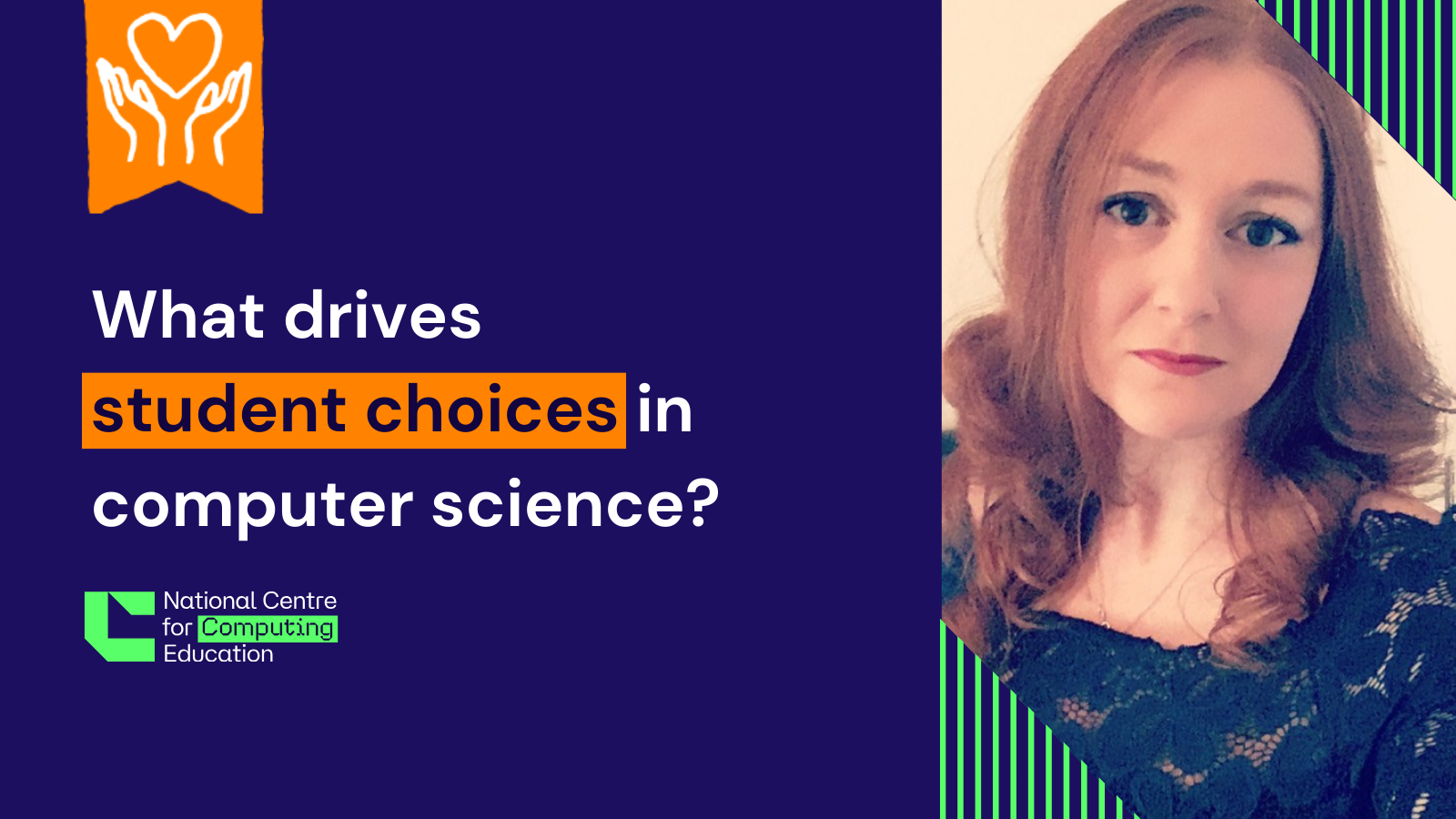What drives student choices in computer science?
28 February 2024

We recently caught up with Katy, a secondary computing teacher, about her student voice survey focusing on computing option choice views.
As an ‘I Belong Champion,’ Katy has been asking students who have taken GCSE and A level computer science about their experiences to learn more about what it’s like to be a computer science student, and why fewer girls were choosing computing. The survey aimed to facilitate a better understanding of what makes students choose computer science, with the aim of taking the findings into making more students feel like they belong in the subject.
Belonging and Identity
“We’re only at the pre-options stage with Year 9 at the moment, but recruitment to GCSE has doubled this academic year, and we’ve boosted the number of girls choosing computer science, so our efforts are already making an impact!” Katy tell us.
It’s early days to see how the different approaches and activities will translate into student numbers and the proportion of girls in GCSE computer science groups this September. However, Katy’s study has been a positive experience in capturing the thoughts of King James I Academy students, which she shares below.
Survey Design
Students in Years 10 to 13 answered questions using a Google Form to maintain anonymity and reduce response bias. They also participated in follow-up interviews for in-depth exploration.
Questions were deliberately simple to ensure quick responses and analysis. Katy followed up on interviews with individual conversations with students or in small focus groups, addressing specific responses. Students discussed their motivations for choosing computer science, teaching approaches, the uniqueness of the subject, fun elements of computing lessons, and the influence of relatable role models.
Interview Design
Students' discussion prompts arose around the following pointers:
- Why did you choose to study computer science?
- What is it about the way it's taught and what you learn that you like?
- What makes this subject different from others, if at all?
- What makes it fun?
- Why might some students not like it?
- What made you, therefore, pick it as an option?
- Do role models or other students studying it already make a difference?
Why study computer science?
Common themes emerged from Katy's analysis, highlighting students' interest in computers, job prospects, and the usefulness of acquired skills.
Girls, notably, recognised the broader applicability of skills beyond specific jobs. Teaching style, hardware, coding, practical work, and the theoretical aspects of the subject were important to most students, with no significant gender differences noted.
A desire for practical work, programming, and a focus on real-world applicability emerged as common themes. The teaching of computing, especially at KS3, was crucial in emphasising the importance of foundational knowledge and a link to KS4.
Teacher Insights
Katy's interviews revealed a notable trend: students acknowledged the growing significance of technology in daily life, inspiring them to consider a broad range of career pathways. The variety of lessons, engaging atmosphere, and hands-on application of knowledge contributed to students' overall enjoyment and interest in the subject.
Additionally, the students, recognising the uniqueness of computer science as an option, expressed a sense of belonging and identity by being part of what they described as a niche community. They also shared their desire to do practical work and learn to programme, which could be linked to this subject's different nature from other subjects and its logic.
What next?
The study's results have already been incorporated into school planning with teachers and leadership colleagues. Katy plans to have more follow-up conversations with current students and investigate what factors affect Year 8 students' decisions about their future.
Student voices will continue to support planning and review. This time, it is evident that the survey has boosted conversations amongst students, teachers, and leaders about computer science and computing options in school, a positive step towards the wider mission we have to encourage more people into computer science and making them feel as though they belong.
You can join Katy as an I Belong champion through completing our remote short-course 'Encouraging girls into computer science'.